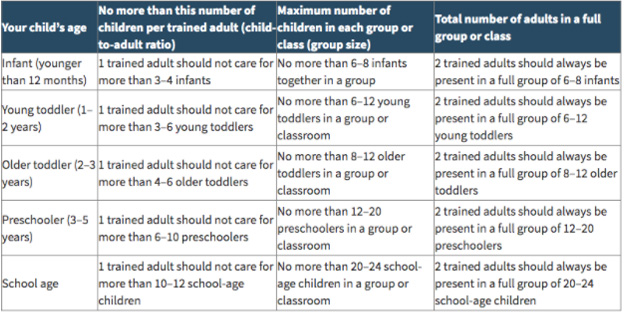OCEANSIDE CHILD DAY CARE CENTER – ENROLL NOW
We do not have a waiting list at the moment.
Frequently Asked Questions
Parents spend an average cost of $211 per week for a daycare in a children’s center daycare.
For a per hour cost, on average, parents spend $40 per day in a full-time setting oceanside daycare.
In a day care center oceanside CA, a group of children is usually considered to be the children who are in the same classroom. Be sure to check your state’s requirements to learn more about groups with children of mixed ages and other requirements for programs in your state.
Day care center oceanside CA services have a minimum age of six weeks and are welcome to stay until your children reach a school-age of six.
Preschool age ranges between three to five years old.
It depends on the preschool. Some preschools, different from a daycare for preschool age groups. Standard Preschool is 2-3 days a week and can be as little as 2-3 hours a day.
If your 2 or 3 year old isn’t quite ready, there’s no harm in waiting until they are older up to 4 years old to start them in preschool. If you think they’re on the cusp of being ready, consider enrolling your children in childhood education.
When young children feel safe and secure in their classroom environment, they’ll ultimately learn more. Here is an example of a good preschool schedule in child care oceanside:
AM Class:
- 7:50AM-11:00 AM
PM Class:
- 12:00 PM-3:00 PM
Maybe you plan to homeschool, but aren’t sure exactly where to start, and worry that your kids will miss out on something by not going to a childcare and preschool. Preschool at home can easily fit into what you have already been doing with your children. They need to know some simple things: life skills, routines, and basic academics. Here are ideas that you can do with your preschooler at home which can help them in the future:
- Name the letters of the alphabet.
- Sit and listen to a book.
- Retell events from a favorite story.
- Draw and write shapes and letters.
- Write his first name.
- Label drawings.
- Tell a story through drawing and/or writing.
- Sort objects.
- Make simple patterns.
- Name shapes.
- Identify numerals 1-10.
- Count to 20.
- Speak clearly and in complete sentences.
- Take turns talking.
- Listen to and follow instructions.
- Identify emotions and feelings.
- Engage in activities for 15 minutes or more.
- Follow rules.
- Play well with others.
- Hold pencils, crayons, and scissors properly.
Maybe your little one is happily ensconced in day care, but you’re thinking it may be time to graduate to preschool. Maybe they spent their first years at home, and you’re scouting the best option for their classroom debut. Sending your child to day care can cost about the same as sending them to preschool. Still, there are some key differences between preschool and day care. Here’s what sets them apart:
Preschools have shorter daily hours: With preschools, you usually have to choose between half-day and full-day programs. And you probably need to enroll your child for at least two days each week.
Daycare centers are more flexible when it comes to hours: Tends to open early and close late to cater to working parents. Some day care centers allow you to totally personalize your child’s schedule, just an hour on some days so you can run errands at your pace and not your tot’s; full days on others so you can go to work.
Preschoolers should participate in a variety of fun and challenging physical activities that help build skills and coordination, but aren’t beyond their abilities. Preschoolers should be active about 3 hours a day.
One of the first few things to teach a preschooler is to point out letters in signs, and go through the alphabet together. Use blocks, big puzzles and other toys to teach letters and numbers. Singing the alphabet and counting songs together. Use books to talk about difficult topics, like anger or sharing.
A good child care center gives children a safe and nurturing place to explore the world around them while also learning and gaining important skills needed to thrive both in school and in life. Here are five advantages of placing your child in an education program at Rising Star Academy ABC:
- Social Skills
- Self-Assurance
- Cognitive Skills
- Discipline
Your child continues to develop in many ways—physically, socially, emotionally, in language and literacy, and in cognitive skills. Teachers support your preschooler in all of these areas:
- Physical development
- Social development
- Emotional development
- Language and literacy development
- Thinking, or cognitive skills
High quality daycare and preschool can have a positive influence on children’s development and school readiness by providing valuable educational and social experiences.
If you are a member of the United States military, you may be eligible for Department of Defense child care fee assistance.
In California parents and guardians are not required to register their children for kindergarten or preschool because the children are not of legal age and so cannot be mandatorily enrolled in an education establishment.
As a military member, you have many affordable child care options. Deciding which one is the best for your family is the question.
A typical child care center is open from 6:30 AM to 5 PM on weekdays. Sometimes it’s even open on weekends, although at reduced hours.




